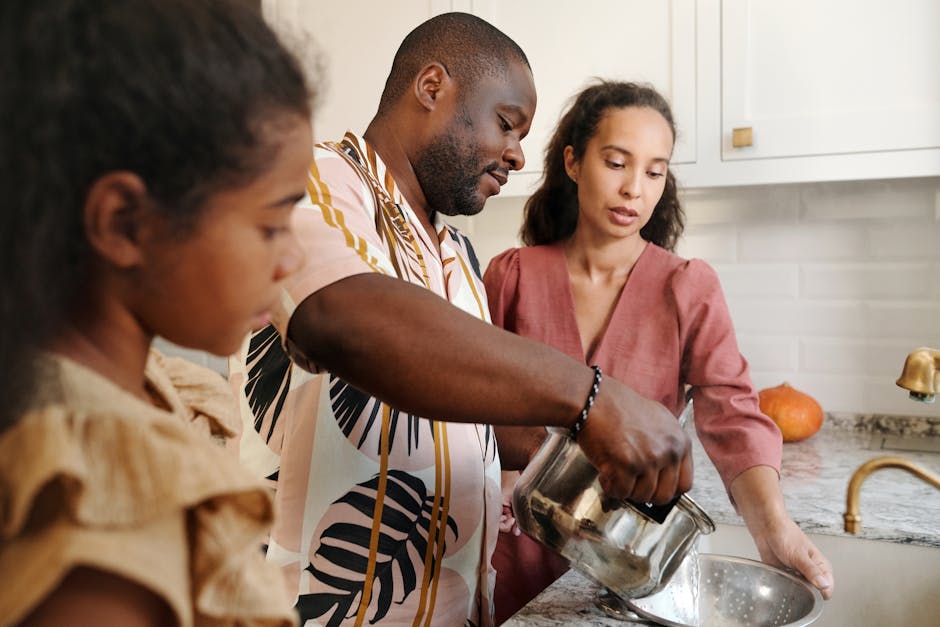Your cart is currently empty!
By
John Abraham
| UPDATED

Every parent wants what is best for their child, and every grandparent does too. The challenge comes when those visions do not match. Conflicting advice can create tension, even when it comes from a place of love. Finding a way through means listening with respect, setting gentle boundaries, and remembering that at the heart of it all, everyone cares for the child.
Understanding Family Dynamics

Family dynamics are shaped by history, culture, and individual experiences. Recognizing these influences helps us appreciate why parents and grandparents might offer differing advice. For instance, while a grandparent might emphasize stability, parents might focus on adaptability. By acknowledging these dynamics, you can better understand the roots of their advice, paving the way for more empathetic conversations. This understanding doesn’t mean you must agree with every viewpoint, but it helps in appreciating where others are coming from.
Identifying Common Conflicts

Common conflicts often arise from differing values and priorities. A parent may prioritize financial security, while a grandparent emphasizes the importance of family traditions. Identifying these recurring themes in advice can help you pinpoint the core issues. Acknowledging these differences allows you to address them directly and constructively, rather than letting them simmer unspoken. Recognizing these patterns will enable you to navigate conversations with greater clarity and purpose, ensuring that you address the root of the conflict.
Communicating With Empathy

Effective communication hinges on empathy. When faced with conflicting advice, conveying understanding can make all the difference. For example, “I see why this matters to you” can help defuse tension. Listening actively without interrupting shows respect and willingness to understand differing viewpoints. Empathy bridges gaps, allowing deeper conversations where all parties feel heard. By focusing on feelings rather than just words, you can transform contentious discussions into opportunities for connection and growth.
Balancing Tradition and Modernity

Striking a balance between tradition and modernity requires thoughtful consideration. While grandparents might hold steadfast to time-honored practices, parents might lean toward contemporary solutions. Evaluating which traditions hold personal significance while embracing new methods can lead to a harmonious blend. For instance, blending a traditional family recipe with a modern twist can honor both perspectives. This approach demonstrates respect for the past while embracing the present, ensuring that cherished customs evolve meaningfully.
Establishing Personal Boundaries

Setting boundaries is crucial when managing conflicting advice. Clearly communicating your own values and preferences can prevent misunderstandings. Saying, “I appreciate your advice, but this is what works for me,” establishes personal limits while showing respect. Boundaries are not about exclusion but about creating healthy spaces where everyone feels honored. By being consistent and assertive, you reinforce your autonomy while maintaining respectful relationships, allowing for personal growth and mutual understanding.
Finding Common Ground

Seeking common ground can transform potential conflicts into collaborative discussions. Identifying shared values or goals, like family well-being or mutual respect, can unite differing opinions. For instance, focusing on the shared desire for happiness might reveal new pathways to agreement. This approach fosters a sense of unity and teamwork, encouraging everyone to work together toward a common objective. Recognizing shared interests not only strengthens family bonds but also promotes a cooperative environment.
Seeking Third-Party Support

Sometimes, navigating conflicting advice requires an external perspective. Seeking support from a neutral third party, like a family therapist or counselor, can provide clarity and mediation. They can offer insights into family dynamics and facilitate productive conversations. This step is particularly beneficial when emotions run high, or when discussions reach an impasse. By involving a third party, you invest in the health of your relationships, ensuring that they are built on understanding and mutual respect.

